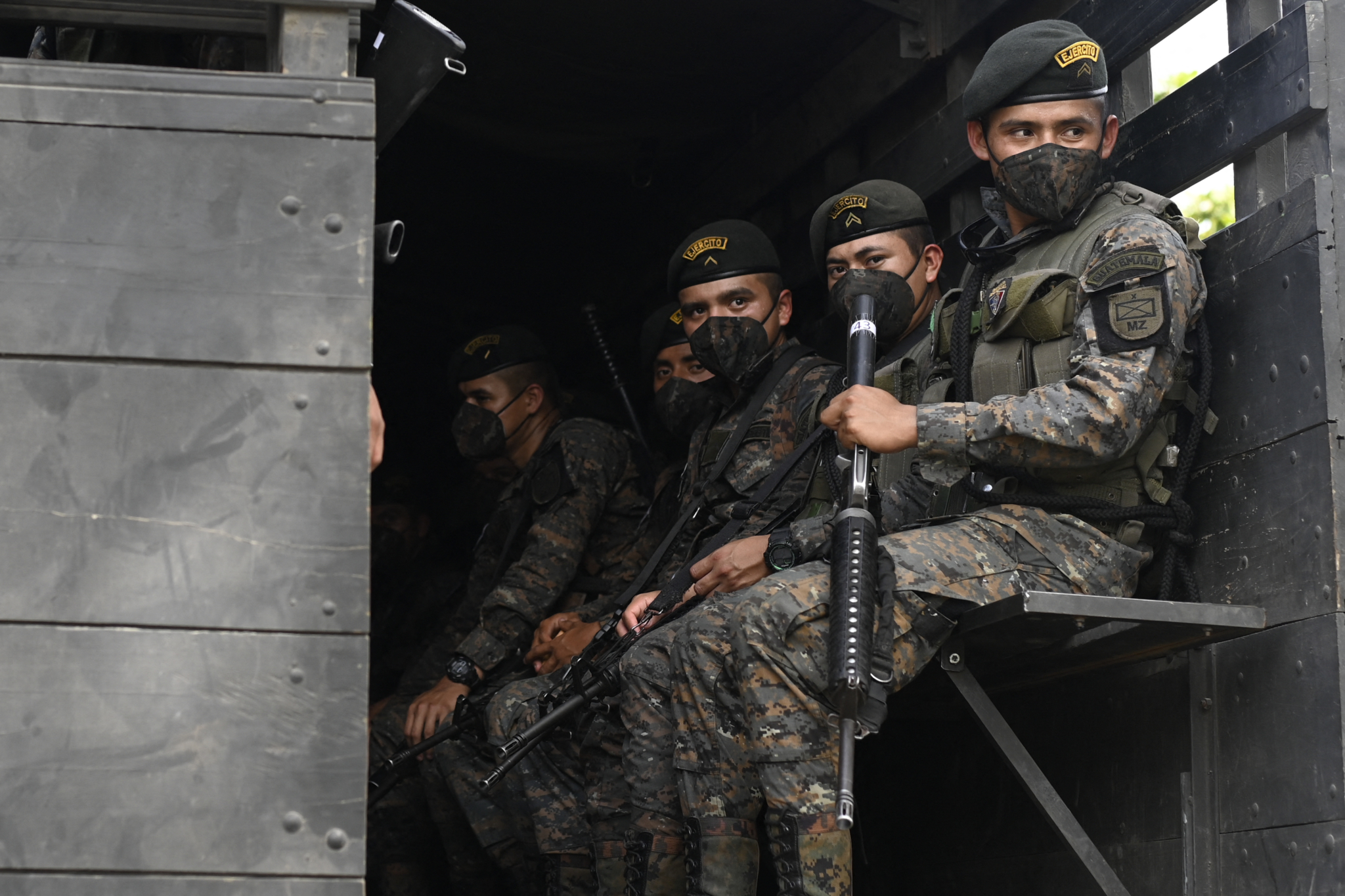As our new Foreign Affairs Minister Mélanie Joly assesses priorities for Canada’s foreign policy, it’s crucially important that Guatemala be on the agenda.
The Central American country was cause for extreme concern during decades of armed conflict and genocidal violence by the army that saw 200,000 mostly Indigenous Mayan people killed or disappeared and another 150,000 forced into exile, many of them in Canada.
Today, we are once again witnessing a desperate exodus, as a growing number of Guatemalans feel they have no choice but to flee the devastations of climate change, deterioration of their livelihood, violence and pervasive insecurity. Add to that an assault by the state on human rights defenders, free press, and organizations that have sought to protect land, Indigenous territory, and the rule of law for all.
It is imperative that Canada speaks out visibly and consistently to support civil society leaders and organizations in Guatemala that are under increasing attack. It is also imperative that Canada works with international allies to stop a return to terror and impunity.
In recent weeks, Canadian organizations received urgent calls for solidarity from El Estor in eastern Guatemala. In July 2019, the country’s Constitutional Court ordered a suspension of operations at the notorious Fenix nickel mine, formerly Canadian-owned and long accused of violating Indigenous rights. Last month, President Alejandro Giammattei decreed a state of siege and sent in heavily armed security forces to quash a peaceful protest by community members against the mine’s continued operation. Human rights organizations documented excessive use of force by security forces, injuring women and children. Fear spread as the homes of Mayan Q’eqchi’ community leaders were raided and journalists threatened.
The situation in El Estor is only the latest in a pattern of repression and persecution of people who speak up for Indigenous rights and the environment in areas where mines and hydroelectric projects have obtained permits to operate. Guatemala has a pattern of issuing such permits—many to companies with Canadian financial backing—despite clear corporate failures to comply with environmental assessment requirements, engage in meaningful consultation or obtain the free, prior and informed consent of affected Indigenous peoples.
Economic imperatives behind Canada’s promotion of Canadian mining projects must not trump international obligations to protect human rights and threatened human rights defenders. As an endorser of the UN Guiding Principles on Business and Human Rights, Canada knows only too well what those obligations are.
Meanwhile, the situation is becoming ever more dangerous. Guatemala was the world’s seventh-deadliest country for land and environment defenders in 2020. Smear campaigns and unfounded criminal charges are also used to attack Indigenous rights defenders, human rights activists and their supporters.
Disturbingly, prosecutors, judges, and magistrates are now being criminalized, too. Those targeted include members of the Human Rights Prosecutor’s Office, the Special Prosecutor’s Office against Impunity, magistrates of the Constitutional Court, judges of higher-risk courts, and tribunals involved with emblematic cases of serious human rights violations and large-scale corruption investigations.
In May, a former analyst with the International Commission against Impunity, who worked on the so-called La Línea bribery-to-avoid-taxes case against former president Otto Pérez Molina, was arrested along with the former head of the Tax Administration Superintendency. Both remain in preventive detention where they have received threats and are in a high-risk situation, made worse because they investigated many of the people detained in the same place.
Equally alarming is the transfer last month of Hilda Pineda, head of the Human Rights Prosecutors Office, to a new office investigating crimes against tourists. Pineda worked on conflict-era crimes, including the genocide case against former dictator Efraín Ríos Montt, won the conviction of two military officials in the landmark Sepur Zarco sexual violence case and advanced other important cases that led to the conviction of high-level military officials for crimes against humanity. Tellingly, the office from which Pineda was moved also oversees units investigating current violations against human rights defenders and journalists.
A dangerous backslide is clearly underway. What is at stake is nothing less than the independence of the judiciary, the right to due process, and the right to protect human rights, Indigenous territory, and the environment. UN and OAS experts are sounding the alarm. Will Canada do the right thing and unequivocally prioritize the defence of justice, human rights, the rule of law and hope in Guatemala?
Lise-Anne Léveillé and Deanna Fasciani co-chair the Americas Policy Group, a national network of Canadian civil society organizations working for human rights and justice in Latin America.
This article originally appeared in The Hill Times.






















